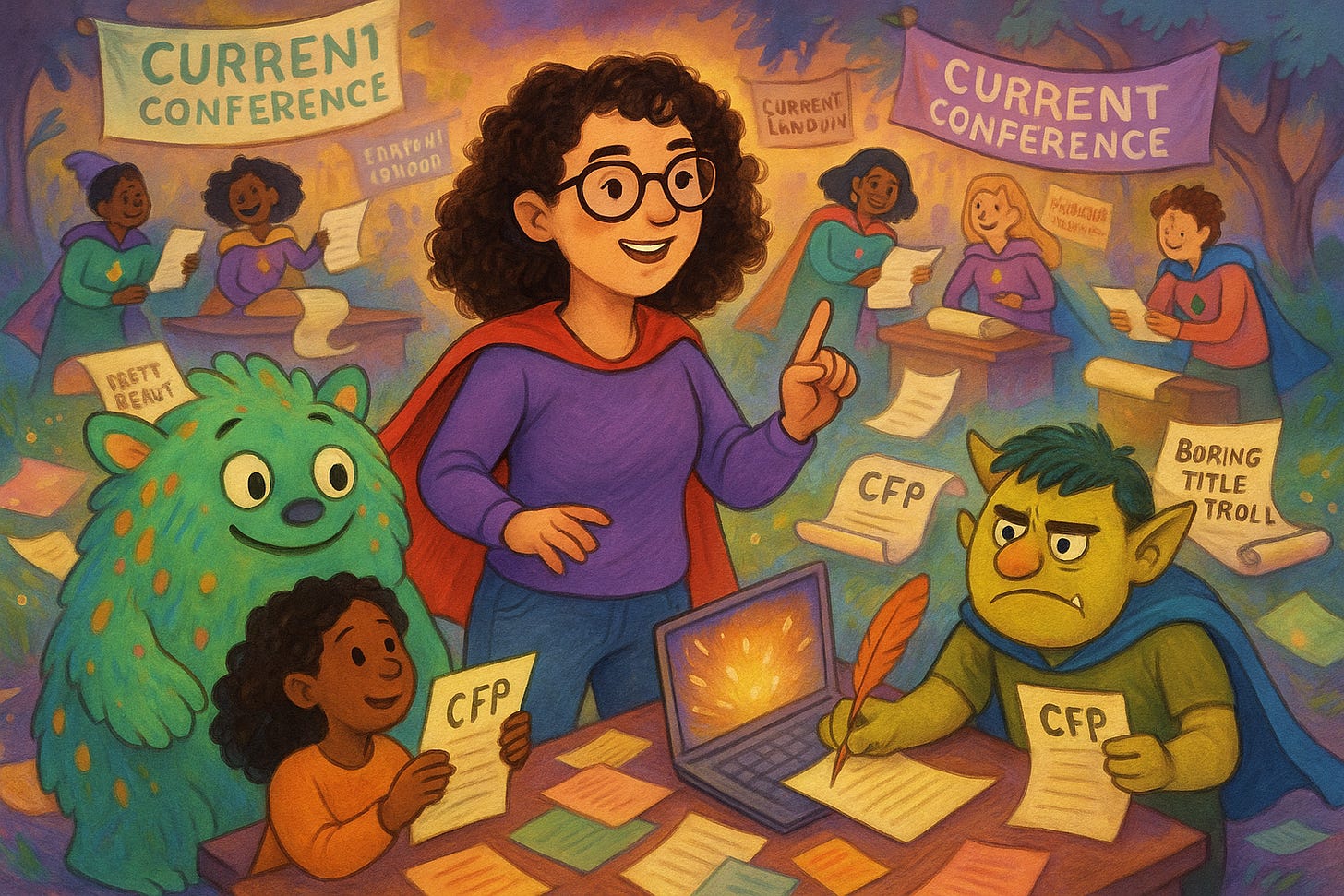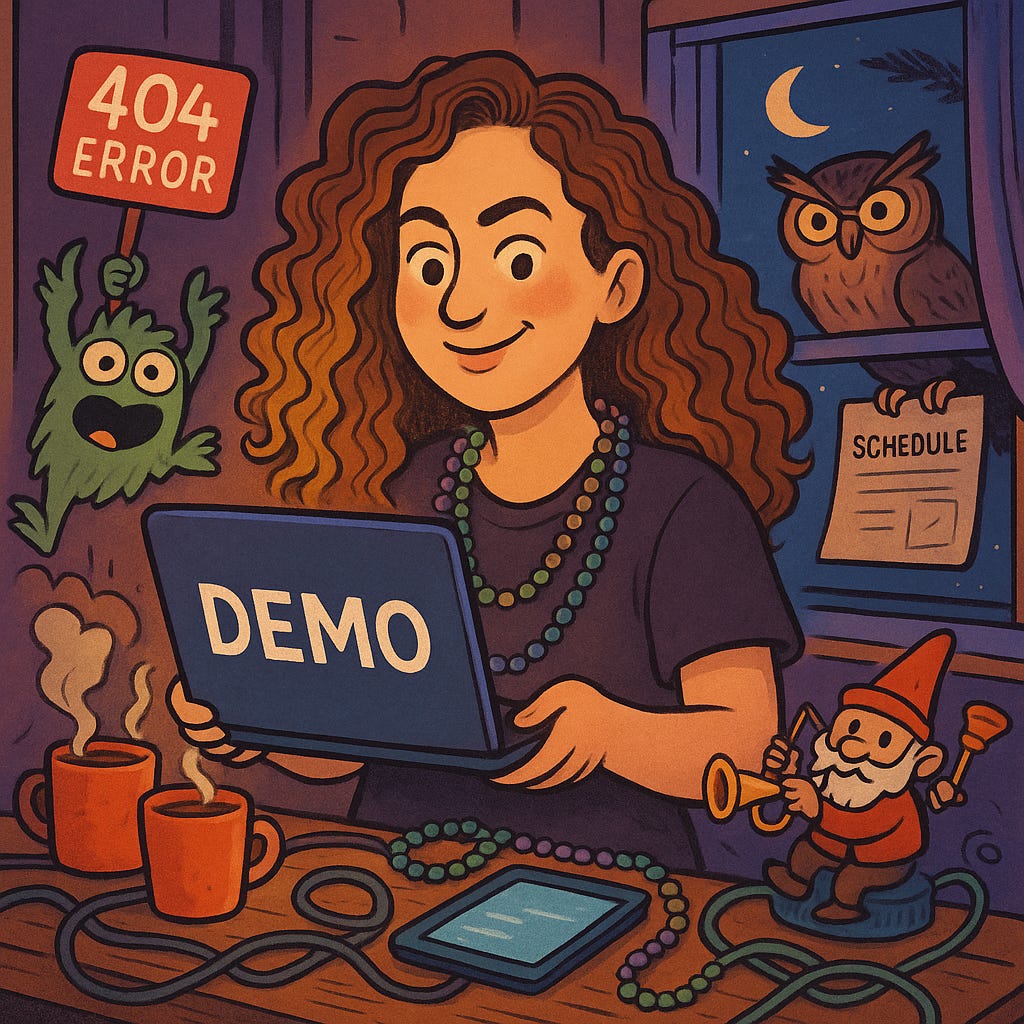How to get your cold talk abstract accepted
In this post, I share the exact framework that helped me (and the speakers I mentor) land conference talks around the world—from catchy hooks to title tweaks, and the monsters you meet along the way.
As the program committee (PC) Chair for Current events (prev. Kafka Summit), a many-year PC member on the DATA + AI Summits (by Databricks), PC at Microsoft developer events, conference organizer (FlipCon), track lead, and PC at QCon events, I read thousands of Call for Papers (CFPs) each year.
Some sparkle right away; others bury a good idea under layers of jargon. Over time, I’ve found a simple way to write abstracts that land onstage more often than not. It still brings me about a one‑in‑three acceptance rate, and it’s what I share with speakers I mentor and the teams who invite me in for workshops.
Below is the framework—polished by trial, error, and plenty of late‑night coffee—but told as plainly as I can.
1 - Start with the Abstract, Worry About the Title Later
Draft the substance first. Titles reveal themselves once you know exactly what the talk is about. And if the perfect title never shows up? Use your favorite AI as a brainstorm buddy. (More on that in 3).
Word limits are ceilings, not goals. If you can say something in 120 words, don’t stretch to 300. No committee has ever rejected me for being too brief. Nor did I reject any talk proposal abstract for being too brief. only for not having enough substance to understand what the talk will be about. Know the difference.
2 - A Four‑Beat Abstract
2.1. Hook — Makes the reviewer pause.
Surprise, provoke, or charm—in one sentence. Make the reviewer excited on the first line.
2.2. Challenge — name the myth
Why should people care? Call out the problem or misconception you’re about to dismantle. Daring your audience to rethink what they “know” primes them to listen.
2.3. How — show your hand
Explain the delivery format in plain words. Is it a live demo, a hands-on workshop, or a learnings from the trenches talk? Tell them. It is okay to commit to something you are still working on, but ensure it will potentially work within the conference timelines. So you’d be able to deliver some insights on the how.
2.4. Benefits — paint the after-picture
Spell out what attendees will leave with: “You’ll walk out able to…”. If the benefit is obvious, you can let it shine through the earlier sentences and keep the abstract clean.
3 - Shaping a Title
Keep it short—five to seven words is plenty.
Use plain language before clever wordplay.
Offer a hint of the payoff, so people know why they should click.
Test options quickly with friends or social media, but trust your gut.
Lead with value.
OK to be provocative, but stay professional.
It’s ok to use AI to brainstorm ideas, but make sure you are not losing context. While AI can provide some enticing titles, it hallucinates more than we think. Use it as a template, yet tweak it to mean what you actually want it to mean.
4 - A Quick Pre‑submissions Checklist
Does the hook make me pause or smile?
Is the challenge bold yet believable?
Have I made the format clear?
Will listeners leave able to do something new?
Can the title stand alone in the program?
Am I within the word (or character) limit - without fluff?
If anything feels weak, polish once more. Good abstracts are usually short; great ones are also clear.
5 - On Rejection
The same talk can win “Best in Conference” in one city and get a polite no in another. Different committees, different tastes. Ask for feedback when you can, sift out what helps, and keep sending the talk out. Someone else will want it.
Stay positive. It will come.
6 - Got accepted? Hurray!
Take a moment. Seriously. Let it land.
You just got invited to share your ideas with a room full of curious, brilliant people. That’s a big deal. Go text your friend, send a voice note to your mom, or treat yourself to that overpriced latte. You can stress out about the talk, closer to the event.
You got this. And I’m cheering for you. 💛
Want specific advice?
Current New Orleans CFP is open till June 15. I am running an office-hours on June 13, 2025 8am-9am PDT. Join our #speaker-office-hours in slack community for mentoring from me and other public speaking experts.
Beyond that, every once in a while, I do dedicated workshops that turn rough ideas into abstracts that get accepted (stats are at 90% acceptance). We outline, brainstorm, and refine until you feel confident. If that sounds useful, feel free to reach out to learn more.
And if these notes helped you, I’d love for you to subscribe and share so we can keep the conversation going.
–– Adi


